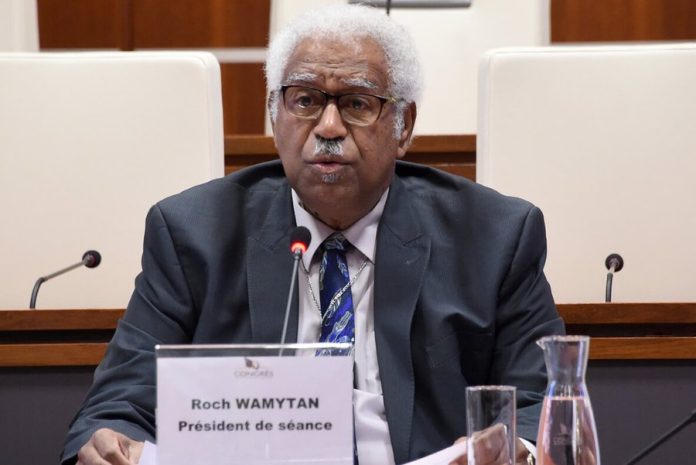The President of the New Caledonian Congress Roch Wamytan says a visit with French representatives will take place on 12 September.
The minister delegate for overseas territories Jean-Francois Carenco is due to come to New Caledonia after both delegate ministers cancelled their initial meeting earlier in July.
In an interview with La Premiere, Roch Wamytan said he still doesn’t know what the ministers will come to discuss.
“We are awaiting to tell us because we had talked over the phone but without any additional information. He will come 12 September, however, I, who is a key signatory and President of the Congress, have no official information on the reason for his arrival in New Caledonia.”
The FLNKS spokesperson Charles Wea said the FLNKS will not go to the visit as the ministers are only meeting members of the government.
“The FLNKS no, but institutions such as the Congress or the government, they are talking institutionally but there is no contact between the FLNKS and the French government on the institutional questions for the moment.
“Now is the time to think about what the French government is about to propose on the future of the New Caledonian question,” he said.
According to Wea, the FLNKS will hold a congress on 17 September as well as one in January to work out what strategy to propose to France in a bilateral talk.
Meanwhile, the President of the Caledonian Union Daniel Goa said the party will again not attend the meeting with France.
It has called a meeting of the signatories to the Noumea Accord in Paris in a month to discuss the situation, but the FLNKS members and Goa told the meeting they will not attend.
“For the bilateral, the talks will include two subjects. One of the irreversible constitutions and one of liberation. All talks with an electoral body as big as France would show that it wants to continue its colonial power over the people. The decolonisation process will end when the independence of New Caledonia Kanaky occurs.”
Paris insists that the referendum complied with the law and now plans to submit a new statute for New Caledonia to vote on in June.
Last December, more than 96 percent voted against independence, but the vote was marred by a majority abstaining after France refused pleas to postpone polling because of the effects of the pandemic.
The pro-independence FLNKS movement, which has the Caledonian Union as a key component, refuses to recognise the result as the legitimate outcome of the decolonisation process.
SOURCE: RNZ PACIFIC/PACNEWS













